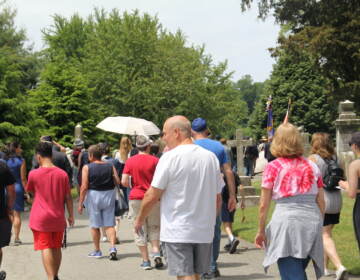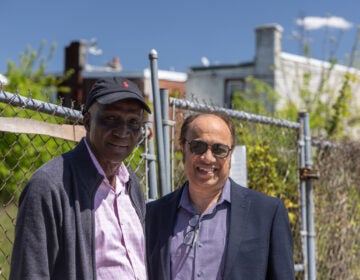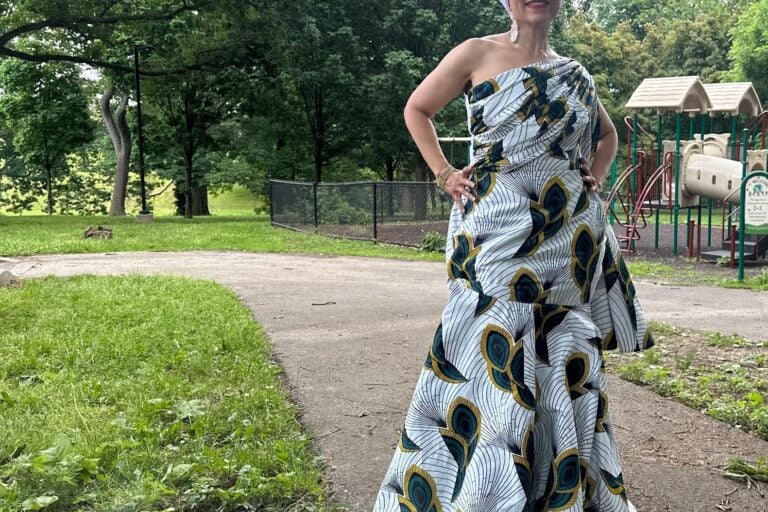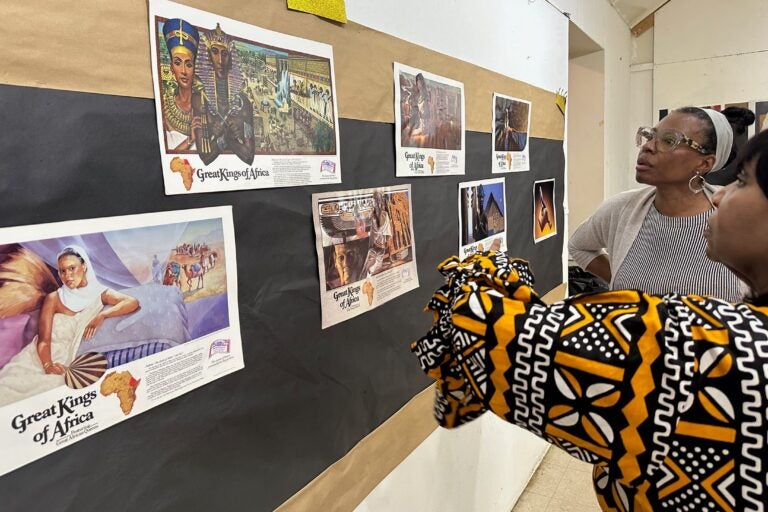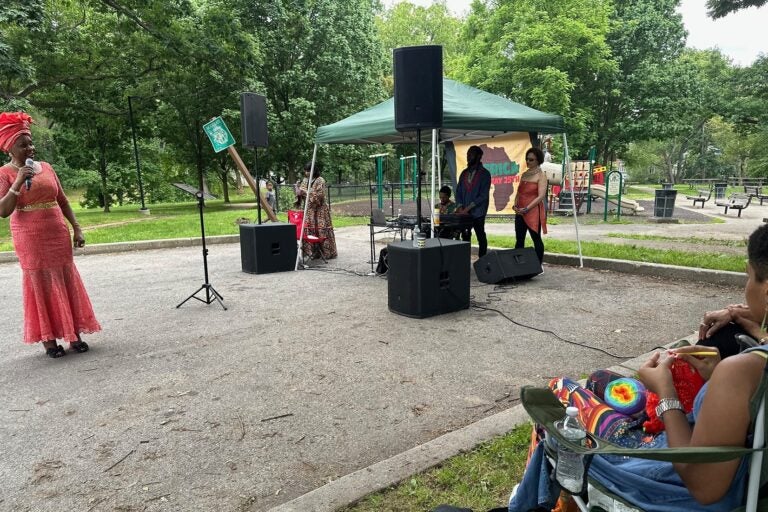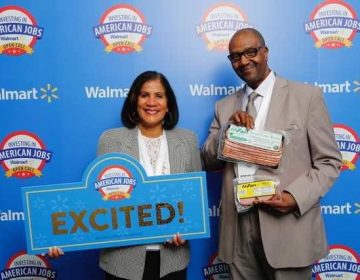Why Philly residents paid tribute to ‘the motherland’ on Africa Day
Organizers of Philadelphia’s Africa Liberation Day want more people to know that the heritage of Black Americans didn’t start with U.S. slavery.
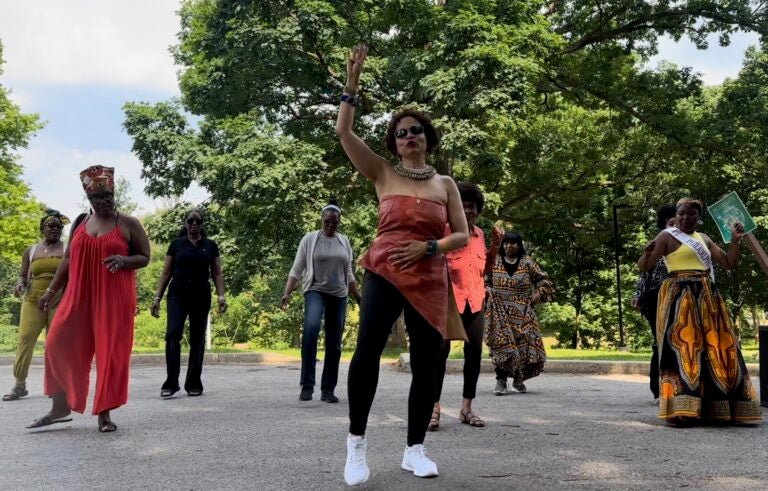
During Philadelphia's Africa Day, attendees learned the dance steps to "Jerusalema," a popular song by South African that was born out of a collaboration between singer Nomcebo Zikode and music producer Kgaogelo Moagi, also known as Master KG. The dance was created by an Angolan dance troupe Fenómenos do Semba which went viral in 2020. (Kristen Mosbrucker-Garza/WHYY)
From Philly and the Pa. suburbs to South Jersey and Delaware, what would you like WHYY News to cover? Let us know!
Gwendolyn Ebron has been trying to fill the gaps in African and African American history for Philadelphians for decades.
She said she was frustrated that typical textbooks only began to mention the African diaspora about 400 years ago.
“We start our history in the middle, [during U.S.] slavery,” Ebron said. “But we have more than 5,000 years of history.”
Through Urban Intellectuals, she teaches children — and sometimes adults — about their heritage as Black Americans. She also runs a Sankofa Club in Philly, an immersive Black history youth group.
“The kings and queens of Africa have given great contributions to the world,” she said. “But most people don’t know because they’re not taught in school.”
So when Ebron’s friend, Patrice Hawthorne, a Philadelphia singer-songwriter, asked her about an African heritage day beyond Juneteenth, and when they discovered Africa Day, the pair got inspired.
“Africa is the cradle of civilization and the motherland so it’s something that we should definitely celebrate and not overlook,” Hawthorne said.
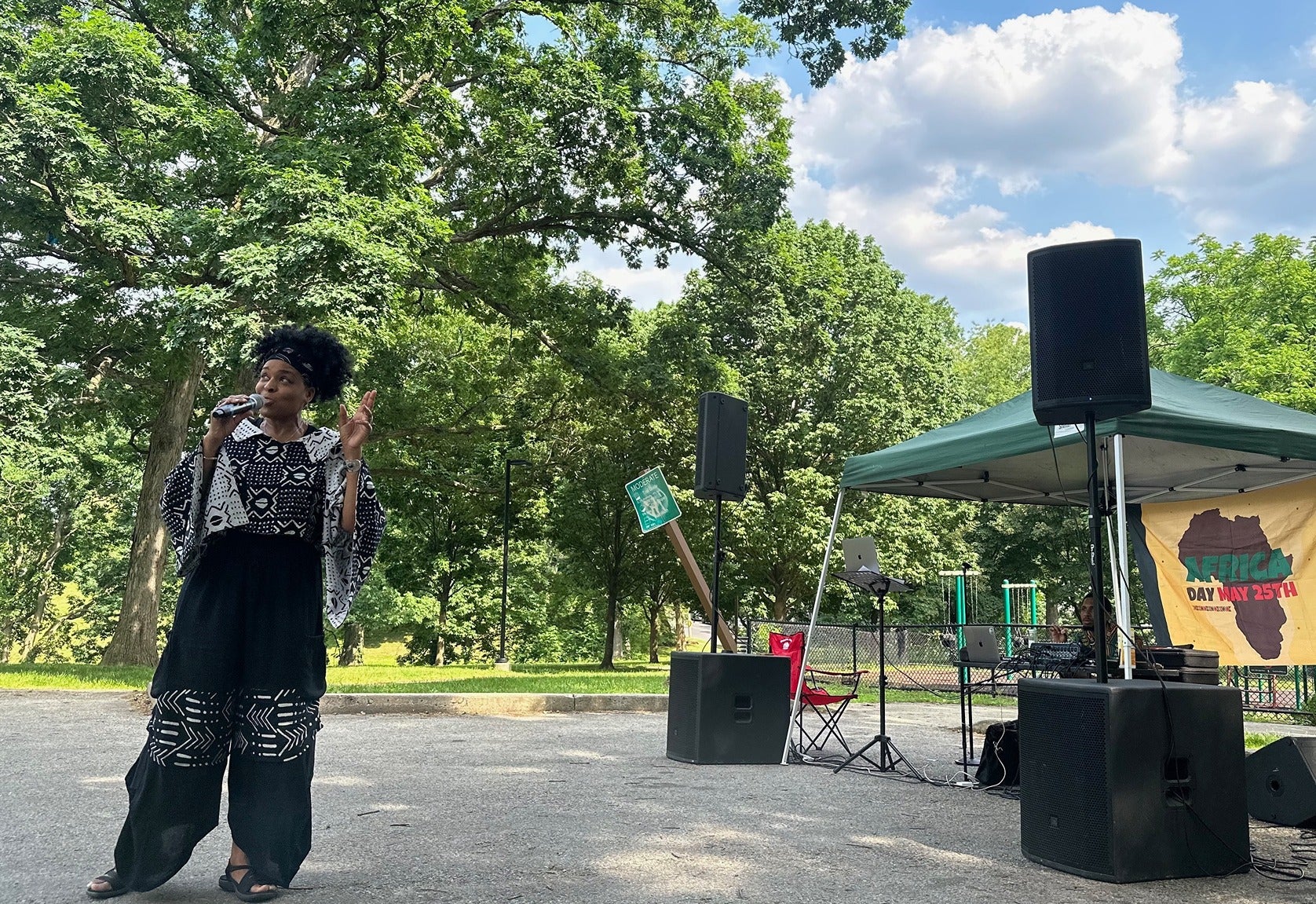
Organizers hosted their first Africa Day on May 25.
It marks what was once known as African Liberation Day in 1963, when the Organisation of African Unity was created.
Now called the African Union, the coalition of African nations rejected colonization and continues to try and promote economic development across the continent.
Africa Day is celebrated around the world. In the U.S., the biggest event is in Houston, Texas.
In Philadelphia, dancers grooved to the music of a South African Afropop gospel song, “Jerusalema,” under the trees of Fisher Park in Olney on Saturday.
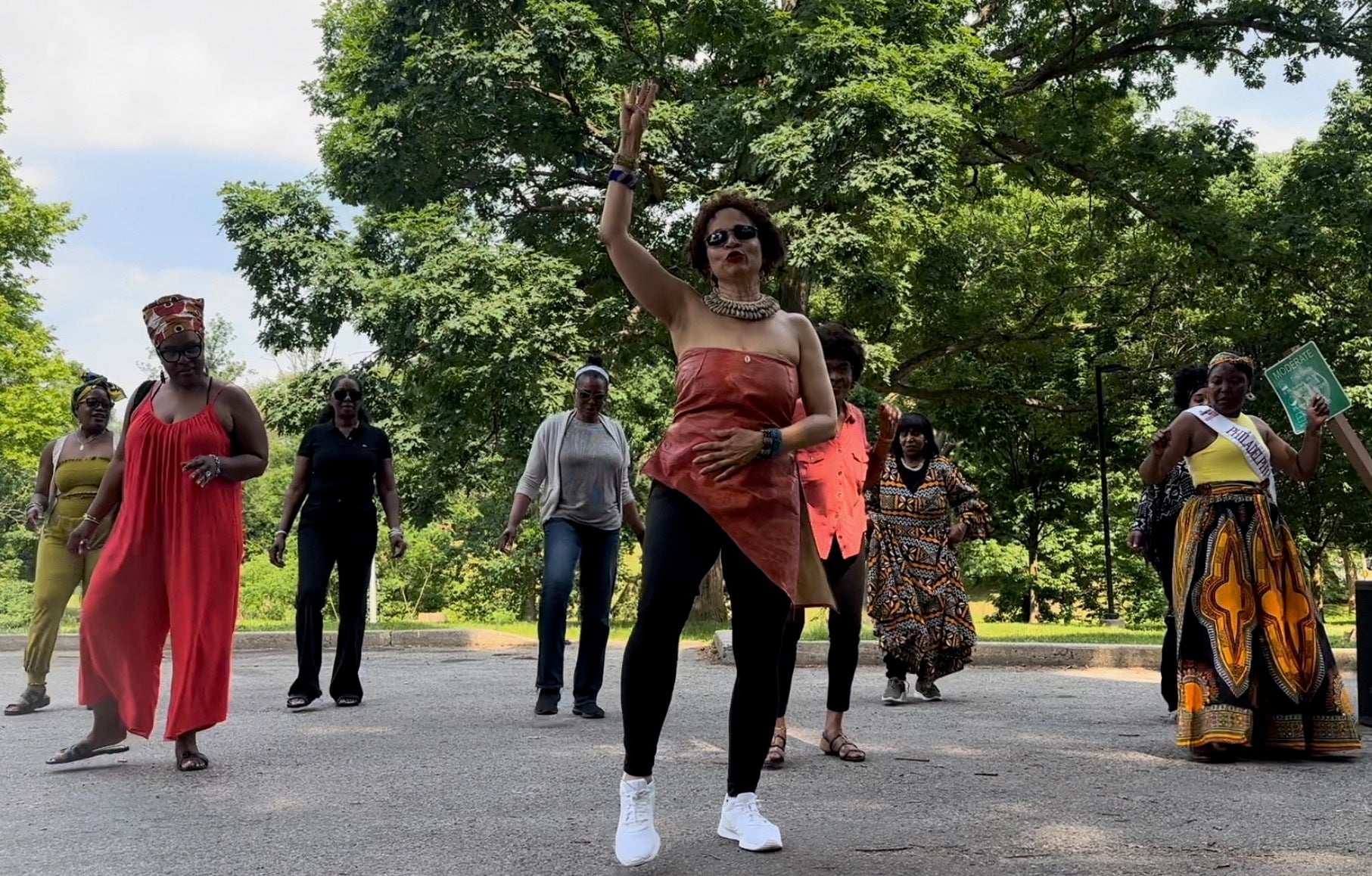
The song is a metaphor for pan-African unity and was created through serendipitous collaboration. Plus, it encourages people to dance in unison.
The music was created by Kgaogelo Moagi, whose stage name is Master KG in South Africa. The song was later written by singer Nomcebo Zikode, whose lyrics are sung in isiZulu, the language of the Zulu people in South Africa.
The dance that spurred viral social media videos across the world was serendipitously choreographed by Angolan dance troupe Fenómenos do Semba.
West Philly native Hazel McGriff just got back from Kenya and knew some steps.
“I love line dancing, so I just jumped right in and picked up the African dance,” McGriff said.
She visited a community in Kenya with Bethlehem Baptist Church to help children at a local school there.
As a children’s book author, she made custom bookmarks for hundreds of students.
McGriff said she’s been tracing her own heritage and found out she’s from Ghana.
Philly’s Africa Day also had children’s activities such as crafting African crowns, coloring kente cloth, drumming, a fashion show, a history exhibit with African royalty, and a guest speaker from Nigeria.

Saturdays just got more interesting.
WHYY is your source for fact-based, in-depth journalism and information. As a nonprofit organization, we rely on financial support from readers like you. Please give today.


